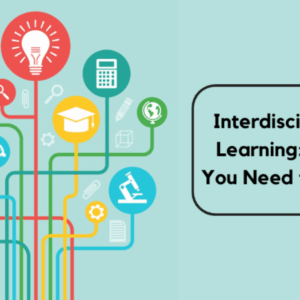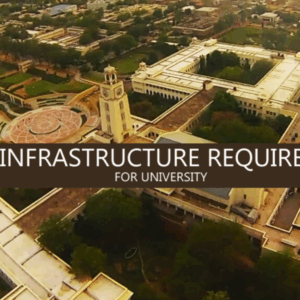Introduction
In a world marked by specialization, innovation, and rapid technological change, the pursuit of postgraduate education is becoming more essential than ever. Once considered a niche or optional step after an undergraduate degree, postgraduate education has now evolved into a strategic tool for deepening expertise, advancing careers, and responding to the complex demands of the modern world.
Postgraduate programs—ranging from master’s degrees to doctoral studies—are no longer limited to academia or research-oriented careers. They play a critical role across fields like business, healthcare, engineering, social sciences, and the arts, offering both intellectual enrichment and competitive advantage in the job market. As industries evolve and knowledge deepens, climbing higher through postgraduate study is increasingly seen as a step toward greater impact and lifelong learning.
Expanding Knowledge and Specialization
One of the core drivers behind the rise in postgraduate education is the need for specialized knowledge. Undergraduate programs provide broad foundational learning, but many fields now demand deeper expertise to keep up with the pace of innovation and complexity.
Postgraduate programs allow students to dive into specific areas of interest, conduct original research, and gain mastery in their discipline. Whether it’s a biologist exploring genetic engineering, a policy analyst studying climate legislation, or a business graduate specializing in data analytics, postgraduate education provides the intellectual space to explore advanced concepts in depth.
Enhanced Career Opportunities
Postgraduate qualifications often open doors to roles with higher responsibility, better compensation, and more influence. Many senior or specialized positions in sectors such as finance, law, healthcare, and academia require—or strongly prefer—candidates with postgraduate degrees.
In a competitive job market, having an advanced degree can distinguish a candidate from others. Employers view postgraduate education as an indicator of dedication, problem-solving ability, and a deeper understanding of the field. This academic progression can also lead to faster promotions and increased leadership opportunities.
Research and Innovation
Research lies at the heart of postgraduate education, particularly for doctoral students. Through rigorous research projects, students contribute to the advancement of knowledge, solve real-world problems, and generate insights that benefit society.
Universities and research institutions rely on postgraduate scholars to fuel innovation. These students work on cutting-edge topics in science, technology, humanities, and social policy, often collaborating across disciplines. Their findings can shape public policy, lead to technological breakthroughs, or offer creative solutions to global challenges.
Developing Critical and Analytical Thinking
Postgraduate study encourages independent thought and critical inquiry. It moves beyond memorization and passive learning into the realm of debate, exploration, and argumentation. Students are expected to analyze complex issues, question assumptions, and construct evidence-based arguments.
This training fosters analytical thinking, intellectual maturity, and problem-solving skills—attributes that are highly valued in any profession and essential in leadership roles.
Global Opportunities and Networking
Many postgraduate programs have an international focus or attract students from around the globe. This exposure to different cultures, ideas, and academic perspectives enriches learning and helps build global professional networks.
Graduate students often collaborate with peers, professors, and professionals from various backgrounds. These networks can prove invaluable for future job prospects, international research collaborations, and cross-border ventures.
Career Change and Upskilling
In today’s dynamic job landscape, it’s common for professionals to switch careers or update their skillsets. Postgraduate education offers a structured and credible way to reskill or transition into new fields.
For example, someone with a background in humanities might pursue a master’s in marketing or digital media. A business graduate might shift toward public health. These transitions are increasingly common, and postgraduate study provides the academic and practical foundation needed to succeed in a new domain.
Personal Fulfillment and Intellectual Growth
Beyond tangible career benefits, postgraduate study is a journey of personal transformation. The process of learning at an advanced level helps individuals gain confidence, purpose, and a more nuanced understanding of the world.
For many, postgraduate education is a lifelong dream, an intellectual challenge, or a way to make meaningful contributions to their community or field. It can also serve as a bridge to teaching, mentoring, or civic engagement.
Flexible Learning Formats
With the rise of digital technology, postgraduate education is more accessible than ever. Many programs now offer flexible formats, including part-time study, online courses, and hybrid models that cater to working professionals or those with family responsibilities.
This flexibility allows individuals to pursue advanced education without putting their careers or lives on hold, making it more feasible for a diverse range of learners.
Challenges and Considerations
While the benefits are clear, postgraduate education also comes with its share of challenges—financial costs, time commitment, academic pressure, and uncertainty about return on investment.
It’s crucial for prospective students to assess their goals, research programs carefully, and evaluate how a degree aligns with their personal and professional aspirations. Scholarships, assistantships, and strategic planning can help mitigate some of the barriers.
Conclusion
Postgraduate education has emerged as a vital step for those looking to specialize, lead, innovate, and adapt in a rapidly changing world. Whether driven by passion, purpose, or professional necessity, climbing higher through advanced study offers a wealth of opportunities for growth.
As industries evolve and global problems become more complex, societies will increasingly rely on individuals with advanced training, critical thinking, and a commitment to continuous learning. Postgraduate education is not just an academic pursuit—it’s an investment in potential, a pathway to impact, and a journey toward lifelong achievement.
FAQs
1. What is the difference between undergraduate and postgraduate education?
Undergraduate education provides foundational knowledge, typically resulting in a bachelor’s degree. Postgraduate education involves more specialized study, including master’s and doctoral programs, focusing on advanced knowledge and research.
2. Why should I consider postgraduate education?
Postgraduate study can enhance your expertise, open new career paths, increase earning potential, and allow you to contribute to research and innovation in your field.
3. Can I pursue a different field for my postgraduate degree?
Yes, many programs welcome students from diverse academic backgrounds, especially in interdisciplinary or professionally oriented fields like management, data science, and public policy.
4. Is a master’s degree necessary to get a PhD?
In many countries, a master’s degree is required before enrolling in a PhD program, though some institutions allow direct entry from a bachelor’s degree with exceptional academic performance.
5. What are some challenges of postgraduate education?
Challenges may include balancing study with work or family, managing financial costs, and coping with academic pressures. Proper planning and support systems can help address these.
6. How long do postgraduate programs typically take?
Master’s programs usually take 1–2 years, while PhD programs can take 3–6 years, depending on the field, research requirements, and location.
7. Are online postgraduate programs credible?
Yes, many universities offer accredited and respected online or hybrid programs. It’s important to verify the institution’s accreditation and program quality.
8. What financial aid is available for postgraduate students?
Options include scholarships, fellowships, assistantships, grants, and student loans. Many universities offer funding opportunities for postgraduate researchers.
9. How do I know if postgraduate study is right for me?
Evaluate your career goals, academic interests, and long-term aspirations. Consider speaking with mentors, industry professionals, and academic advisors.
10. What skills will I gain during postgraduate education?
You will develop advanced research abilities, critical thinking, specialized knowledge, time management, communication skills, and a professional network.






